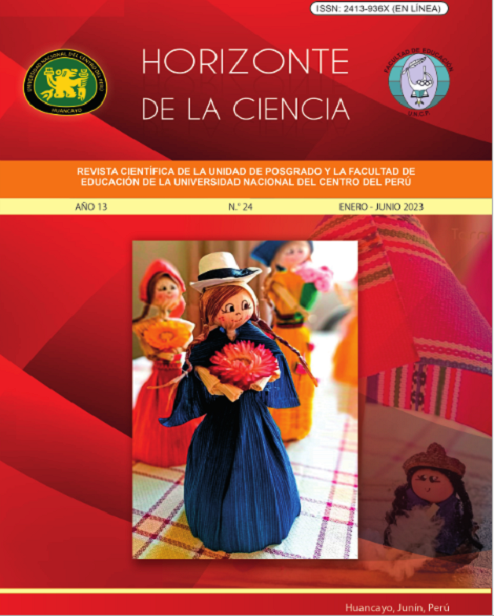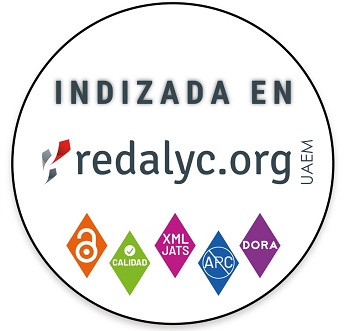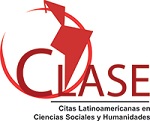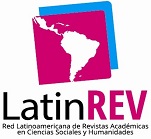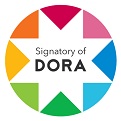Gamification as a formative evaluation methodology in students of a Technological Institute
DOI:
https://doi.org/10.26490/uncp.horizonteciencia.2023.24.1677Keywords:
teaching, evaluation, formative evaluation, games, educational gamesAbstract
The present study seeks to determine the effect of gamification as a formative evaluation strategy in students of a Public Technological Higher Education Institute. The research was of an applied type with a pre-experimental design and a quantitative approach. The sample consisted of 25 students of the V semester of the executive secretarial study program. Data was collected using an assessment rubric. Thus, 36 criteria and a four-level ordinal scale were developed to measure the formative evaluation variable. Wilcoxon’s T test statistic was obtained. For the general hypothesis, a p value was obtained – value <0,0001 The study concludes that there were important differences at the beginning (pretest) and at the end of the experiment (postest).
Downloads
References
Balakrishnan Nair, B. (2021). Endorsing gamification pedagogy as a helpful strategy to offset the COVID-19 induced disruptions in tourism education. Journal of Hospitality, Leisure, Sport & Tourism Education, 100362. https://doi.org/10.1016/J.JHLSTE.2021.100362
Behl, A., Jayawardena, N., Pereira, V., Islam, N., Giudice, M. Del, & Choudrie, J. (2022). Gamification and e-learning for young learners: A systematic literature review, bibliometric analysis, and future research agenda. Technological Forecasting and Social Change, 176, 121445. https://doi.org/10.1016/J.TECHFORE.2021.121445
Black, P., & Wiliam, D. (2009). Developing the theory of formative assessment. Educational Assessment, Evaluation and Accountability(Formerly: Journal of Personnel Evaluation in Education) 2009 21:1, 21(1), 5–31. https://doi.org/10.1007/S11092-008-9068-5
Blohm, I., & Leimeister, J. M. (2013). Gamification: Design of IT-based enhancing services for motivational support and behavioral change. Business and Information Systems Engineering, 5(4), 275–278. https://doi.org/10.1007/S12599-013-0273-5
Breckler, S. J., & Wiggins, E. C. (1989). Affect versus evaluation in the structure of attitudes. Journal of Experimental Social Psychology, 25(3), 253–271. https://doi.org/10.1016/0022-1031(89)90022-X
Cornejo, M. A. N., Desiderio, S. V. E., & Méndez, M. M. S. (2021). Educación superior con nuevas tecnologías de información y comunicación en tiempo de pandemia. Horizontes. Revista de Investigación En Ciencias de La Educación, 5(19), 813–825. https://doi.org/10.33996/REVISTAHORIZONTES.V5I19.239
de la Peña, D., Lizcano, D., & Martínez-Álvarez, I. (2021). Learning through play: Gamification model in university-level distance learning. Entertainment Computing, 39, 100430. https://doi.org/10.1016/J.ENTCOM.2021.100430
Díaz, I. Á. E. (2021). Aprendizaje en las matemáticas. La gamificación como nueva herramienta pedagógica. Horizontes. Revista de Investigación En Ciencias de La Educación, 5(17), 311–326. https://doi.org/10.33996/REVISTAHORIZONTES.V5I17.172
Flores-Bueno, D., Limaymanta, C. H., Uribe-Tirado, A., Flores-Bueno, D., Limaymanta, C. H., & Uribe-Tirado, A. (2021). La gamificación en el desarrollo de la alfabetización informacional desde la perspectiva de los estudiantes universitarios. Revista Interamericana de Bibliotecología, 44(2). https://doi.org/10.17533/UDEA.RIB.V44N2E342687
Gallego, F. J., Molina, R., & Llorens, F. (n.d.). Gamificar una propuesta docente Diseñando experiencias positivas de aprendizaje. Retrieved March 3, 2022, from http://www.gartner.com/it-
Hernández-Horta, I. A., Monroy-Reza, A., Jiménez-García, M., Hernández-Horta, I. A., Monroy-Reza, A., & Jiménez-García, M. (2018). Aprendizaje mediante Juegos basados en Principios de Gamificación en Instituciones de Educación Superior. Formación Universitaria, 11(5), 31–40. https://doi.org/10.4067/S0718-50062018000500031
Hosseini, C., Humlung, O., Fagerstrøm, A., & Haddara, M. (2022). An experimental study on the effects of gamification on task performance. Procedia Computer Science, 196, 999–1006. https://doi.org/10.1016/J.PROCS.2021.12.102
Hsu, C. L. (2022). Applying cognitive evaluation theory to analyze the impact of gamification mechanics on user engagement in resource recycling. Information & Management, 59(2), 103602. https://doi.org/10.1016/J.IM.2022.103602
Hunter, D., & Werbach, K. (2012). For the win. https://vr-entertain.com/wp-content/uploads/BattleHuntersIM_4-US-V1.2.pdf
Martínez Paz, D., & Menocal, A. T. (2002). La gamificación para la formación del profesional en ciencias de la información mediante las tecnologías de la información y la comuni-cación gamification for the training of the professionals in in-formation sciences through information and communica-tion technologies. Retrieved March 3, 2022, from https://orcid.org/0000-0002-9360-1846
Ortiz-Colón, A. M., Jordán, J., & Agredai, M. (2018). Gamificación en educación: una panorámica sobre el estado de la cuestión. Educação e Pesquisa, 44. https://doi.org/10.1590/S1678-4634201844173773
Oliva, H. A. (2016). La gamificación como estrategia metodológica en el contexto educativo universitario. Realidad y Reflexión, 16 (44), 108-118.
Resnick, L. B., & Resnick, D. P. (1992). Assessing the Thinking Curriculum: New Tools for Educational Reform. Changing Assessments, 37–75. https://doi.org/10.1007/978-94-011-2968-8_3
Reyes Cabrera, W. R., Quiñonez Pech, S. H., Reyes Cabrera, W. R., & Quiñonez Pech, S. H. (2020). Gamificación en la educación a distancia: experiencias en un modelo educativo universitario. Apertura (Guadalajara, Jal.), 12(2), 6–19. https://doi.org/10.32870/AP.V12N2.1849
Rosales, M. (2014). Proceso evaluativo: evaluación sumativa, evaluación formativa y Assesment su impacto en la educación actual. In Congreso Iberoamericano de Ciencia, Tecnología, Innovación y Educación (Vol. 4, p. 662).
Sandrone, S., & Carlson, C. (2021). Gamification and game-based education in neurology and neuroscience: Applications, challenges, and opportunities. Brain Disorders, 1, 100008. https://doi.org/10.1016/J.DSCB.2021.100008
Sierra Daza, M. C., Fernández-Sánchez, M. R., Sierra Daza, M. C., & Fernández-Sánchez, M. R. (2019). Gamificando el aula universitaria. Análisis de una experiencia de Escape Room en educación superior. Revista de Estudios y Experiencias En Educación, 18(36), 105–115. https://doi.org/10.21703/REXE.20191836SIERRA15
Sobrino-Duque, R., Martínez-Rojo, N., Carrillo-de-Gea, J. M., López-Jiménez, J. J., Nicolás, J., & Fernández-Alemán, J. L. (2022). Evaluating a gamification proposal for learning usability heuristics: Heureka. International Journal of Human-Computer Studies, 161, 102774. https://doi.org/10.1016/J.IJHCS.2022.102774
Strommen, E. F., & Lincoln, B. (2016). Constructivism, Technology, and the Future of Classroom Learning: Http://Dx.Doi.Org/10.1177/0013124592024004004, 24(4), 466–476. https://doi.org/10.1177/0013124592024004004
Trejo-González, H., & Trejo-González, H. (2020). Experiencia de gamificación para la enseñanza de un segundo idioma. Educación y Educadores, 23(4), 611–633. https://doi.org/10.5294/EDU.2020.23.4.4
Downloads
Published
Issue
Section
License

This work is licensed under a Creative Commons Attribution-NonCommercial 4.0 International License.

